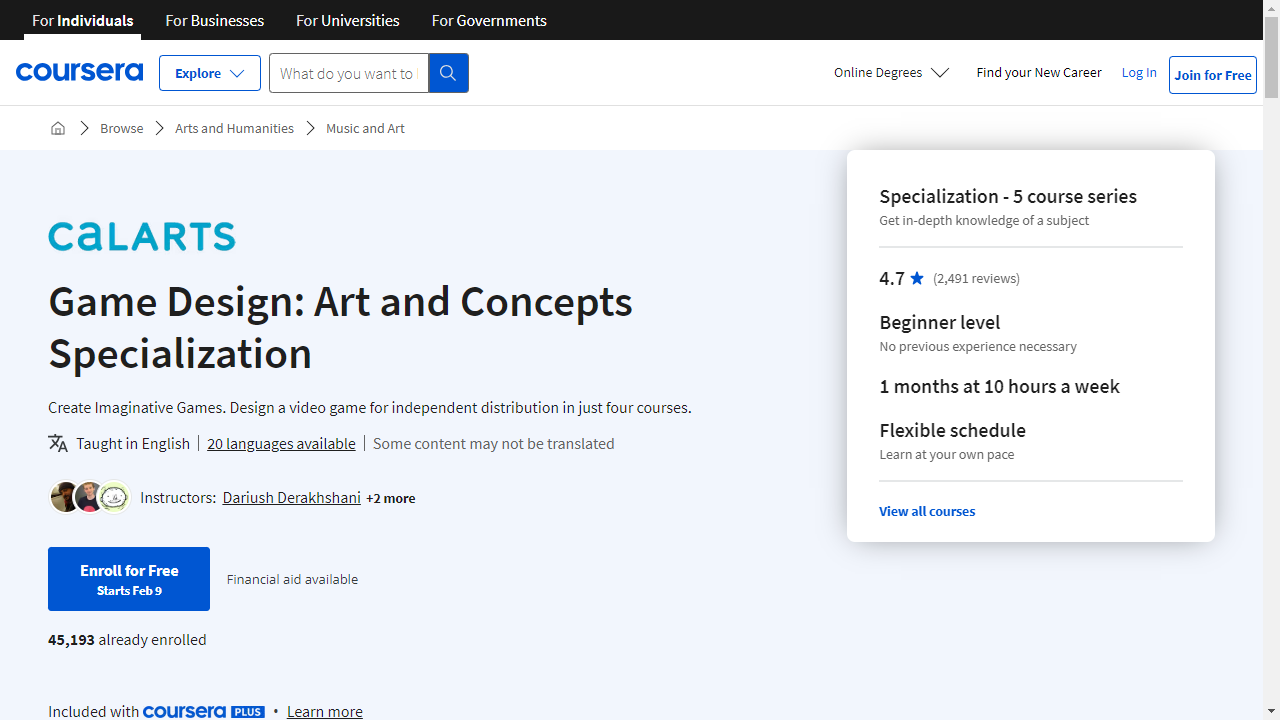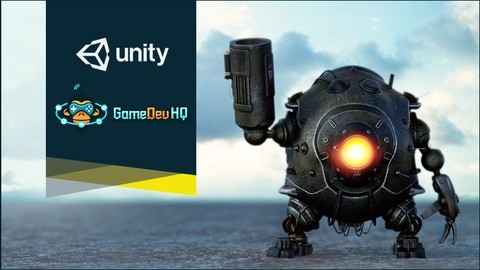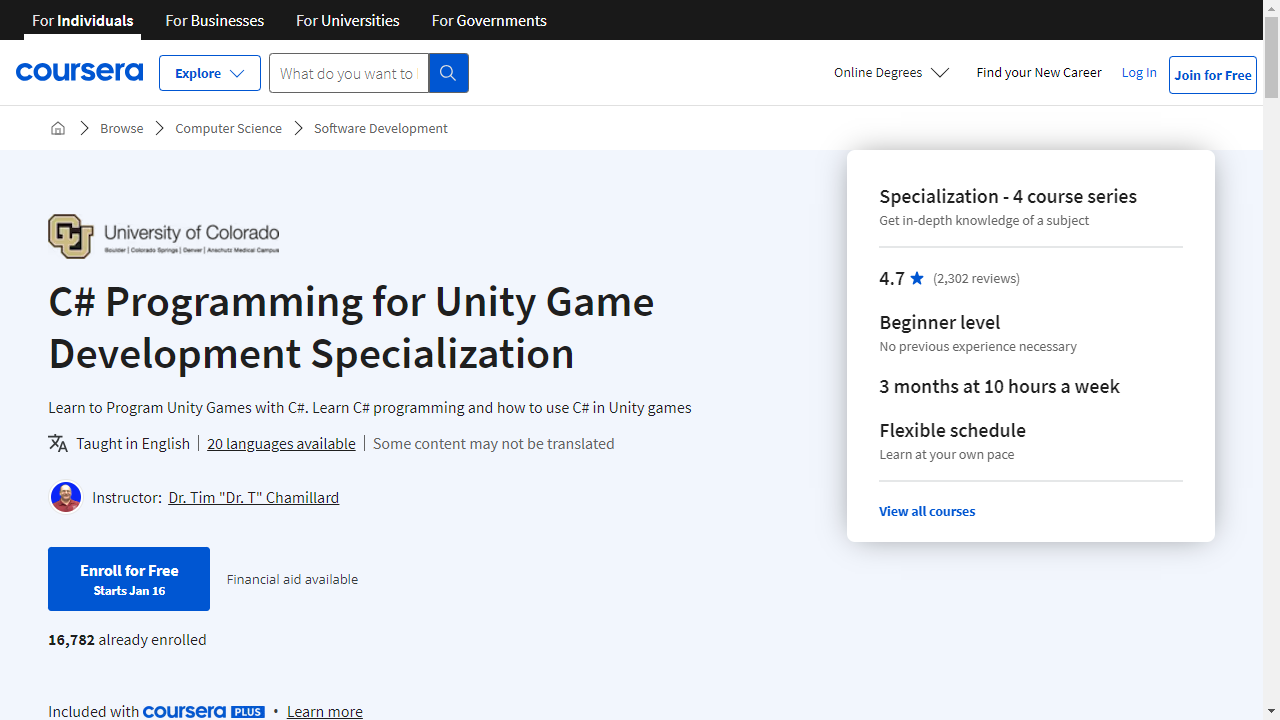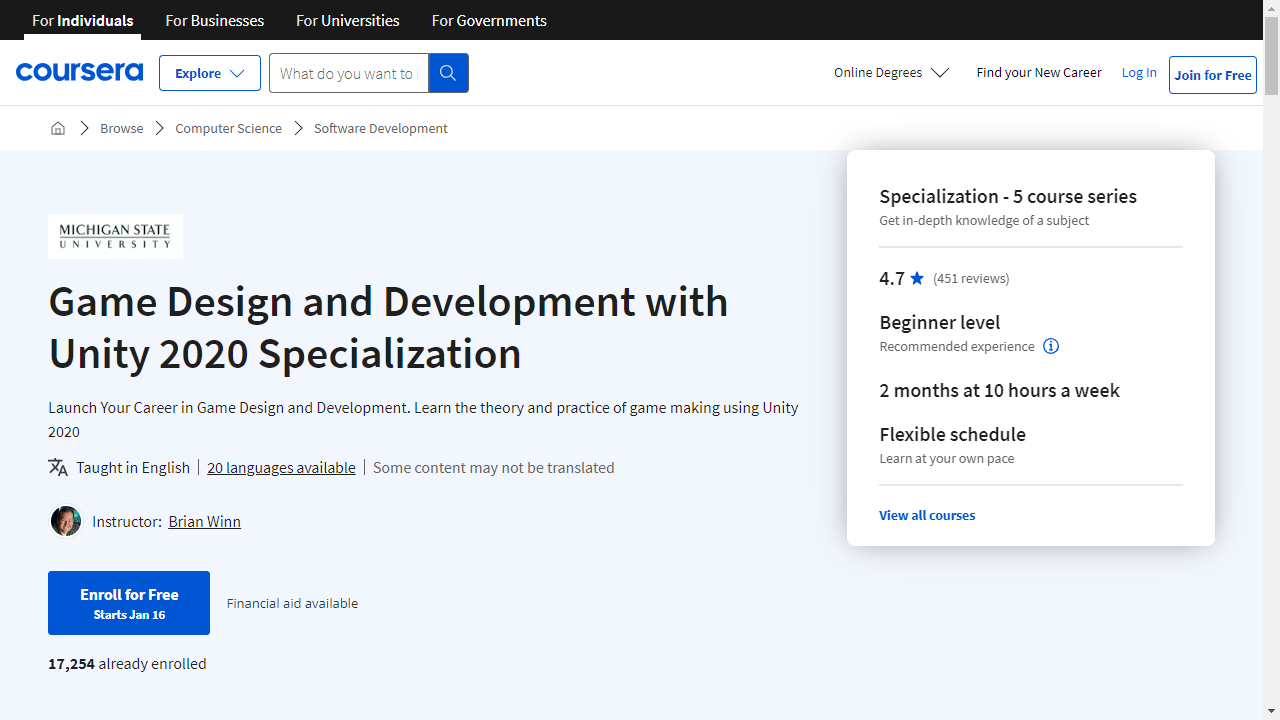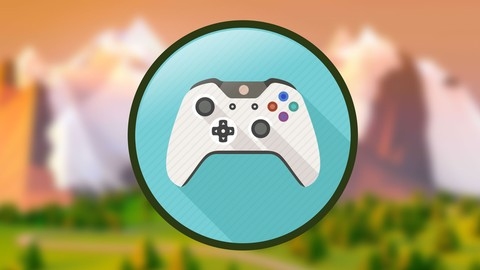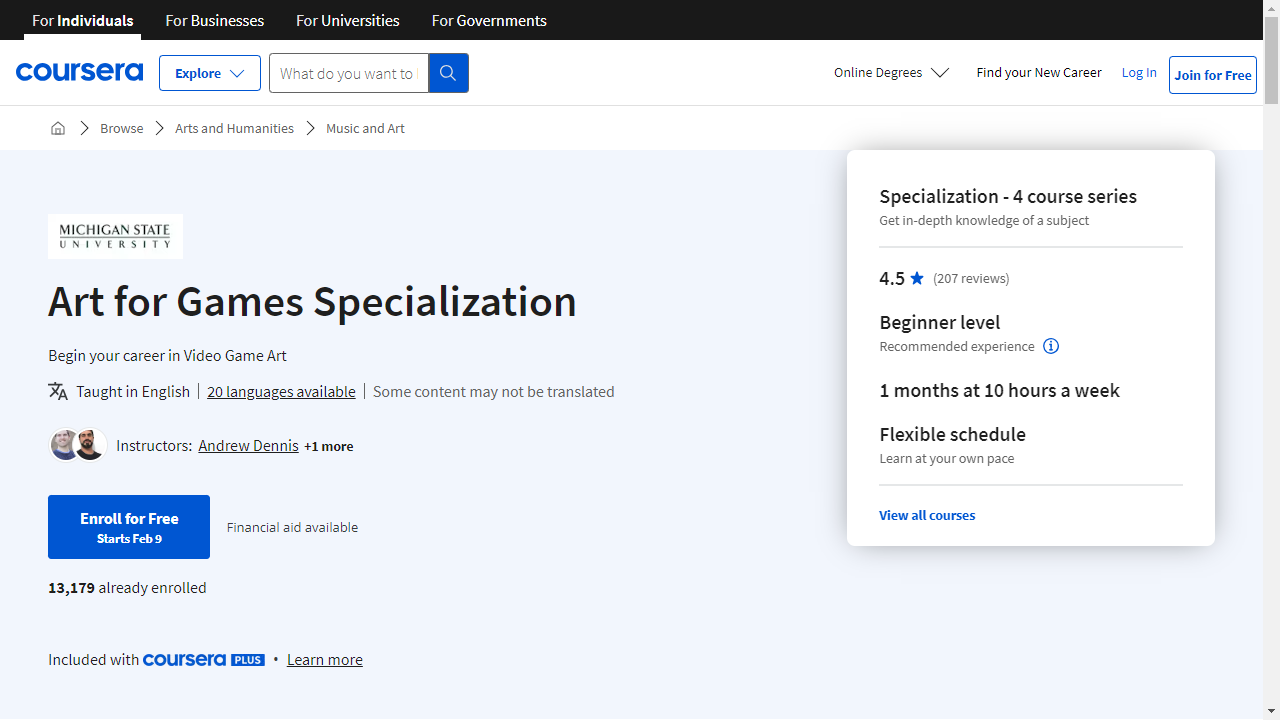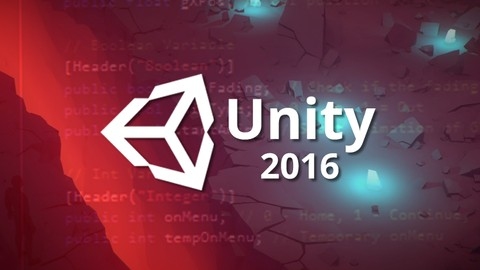Game development is a captivating field that blends creativity and technical expertise to craft immersive and engaging interactive experiences.
From designing intricate game worlds and compelling characters to coding complex game mechanics and artificial intelligence, game development offers a diverse range of skills to master.
By learning game development, you can unlock the potential to bring your game ideas to life, contribute to the thriving gaming industry, and potentially even launch your own successful game studio.
Finding the perfect game development course can be a daunting task, with numerous options available across various platforms.
You’re searching for a course that provides a comprehensive foundation in game design principles, programming languages relevant to the industry, and hands-on experience with popular game engines.
You want a course that caters to your learning style, whether you prefer a structured curriculum or a more project-based approach, and ideally offers guidance from experienced game developers.
Based on our analysis, the best game development course overall is Game Design: Art and Concepts Specialization on Coursera.
This specialization stands out for its comprehensive approach, covering not only the technical aspects of game development but also the artistic and conceptual foundations that are crucial for creating truly engaging games.
It provides a strong foundation in game design principles, storytelling, world-building, and character design, empowering you to craft immersive and memorable player experiences.
While Game Design: Art and Concepts Specialization is our top pick, there are many other excellent game development courses available, each with its own strengths and focus areas.
Whether you’re interested in learning a specific game engine like Unity or Unreal Engine, or you’re passionate about a particular game genre, we’ve got you covered.
Keep reading to explore our curated list of recommendations and find the perfect course to launch your game development journey.
Game Design: Art and Concepts Specialization
Provider: Coursera
This specialization on Coursera equips you with the skills to design your own video games.
You begin by learning the basic concepts of game design, including game mechanics, and how to create a compelling game concept using just pencil and paper.
Next, you dive into storytelling in video games.
You analyze how narratives enhance gameplay by examining different story styles from popular games like “Adventure Time”, “Journey” and “SpongeBob SquarePants.”
You also study traditional story structures, such as the three-act structure, and how they apply to video games.
This course helps you define characters, settings, and structure to create captivating game concepts.
You then transition to building game worlds, understanding that these environments are not mere backdrops but crucial elements of the player’s experience.
You explore level design, studying how real-world games use art and design to shape themes and influence gameplay.
You also discover techniques to make your world feel real or unreal, depending on your artistic vision.
The specialization then takes you through the process of designing compelling video game characters.
You learn the fundamentals of character design and observe how professional character designers tackle real-world design challenges.
You explore concepts of movement, expression, and how to work with technical limitations.
This course benefits anyone interested in animation for games, film, and TV.
Finally, you apply your learned skills in a capstone project, developing a full-fledged game proposal.
This project helps you solidify your game concept, define its genre, and articulate its visual style and overall feel.
Through this process, you learn to express your game ideas clearly and effectively.
This final project requires completion of the previous four courses.
The Ultimate Guide to Game Development with Unity (Official)
Provider: Udemy
This Unity game development course covers a lot.
You’ll gain a strong understanding of game development fundamentals, from setting up Unity projects to coding game mechanics in C#.
The course kicks off with the “Galaxy Shooter,” taking you through the process of creating a complete game.
You’ll learn to create player characters, implement shooting mechanics, design enemies, and manage their appearance using a spawn manager.
You’ll also delve into 2D game art, creating sprites and implementing power-ups like “Triple Shot” and “Shields.”
You’ll then move on to more advanced concepts like building a 2D mobile game called “Dungeon Escape.”
This project introduces you to Tilemap for environment design and delves deeper into C# programming for creating complex enemy AI.
You will learn how to design different types of enemies, each with its own unique behaviors and attack patterns.
The course doesn’t stop at the technical aspects.
You’ll learn how to use Unity Ads to potentially make money from your mobile game and publish it on the Google Play Store.
If you want to dive even deeper, the course includes a section dedicated to creating cutscenes and cinematic sequences.
You’ll work with “The Great Fleece” project, learning how to use powerful tools like Timeline and Cinemachine to craft engaging cinematics.
These tools will give you the power to control camera movements, transitions, and other visual elements to enhance the storytelling in your game.
C# Programming for Unity Game Development Specialization
Provider: Coursera
This specialization equips you with the skills to develop video games using C# and the Unity game engine, popular choices for indie game developers.
The specialization starts with the fundamentals, assuming no prior programming experience.
You’ll learn to write your first C# console application and Unity script.
You’ll discover how to store data, work with classes and objects, and grasp the basics of creating 2D games in Unity.
The courses then delve into more advanced concepts.
You’ll learn to make decisions within your code, handle player input, use loops for repetitive actions, and manage data with arrays and lists.
These skills will allow you to add features like score displays and sound effects to your games.
You’ll even learn about abstraction, a key concept in programming, and apply it to design and implement your own Unity classes.
As you progress, you’ll explore intermediate object-oriented programming, mastering techniques like file handling, inheritance, polymorphism, and event handling.
These concepts are crucial for building complex and well-structured games.
You’ll even have the opportunity to apply your knowledge by developing a complete small Unity game.
Unreal Engine 5: The Complete Beginner’s Course
Provider: Udemy
This Unreal Engine 5 course is perfect if you’re brand new to game development.
You’ll learn about the engine, how to use it, and how to create your own games.
The course begins with the basics of Unreal Engine 5, teaching you how to navigate the interface and use essential tools like the Level Editor and Content Browser.
You’ll gain a solid understanding of game development fundamentals such as Levels, Actors, and basic game design principles.
You will learn how to build levels, create characters, and design gameplay mechanics using Blueprints, Unreal Engine’s visual scripting system.
The course guides you through the process of creating interactive environments, scripting events, and controlling game logic, all without writing a single line of code.
Through practical exercises and projects, you will develop a strong understanding of how to bring your game ideas to life within the Unreal Engine environment.
As you progress, you’ll learn how to create a playable character, implement a third-person camera system, and design interactive gameplay mechanics.
You will explore advanced concepts like collision detection, which dictates how objects in your game interact, and how to use it to build engaging gameplay elements.
You’ll also learn how to create user interfaces (UI) for your game, enabling you to display information to the player, create menus, and design HUDs (heads-up displays).
This course will teach you how to add sound effects, background music, and environmental sounds to your games.
Finally, you’ll learn how to package your finished game, making it ready for distribution.
Game Design and Development with Unity 2020 Specialization
Provider: Coursera
This specialization uses a learn-by-doing approach, guiding you through the creation of different game types, from simple 2D shooters to more complex 3D platformers.
This hands-on experience helps you grasp essential game development skills like level design, game balancing, and even understanding player psychology.
You will use Unity 2020, a professional-grade game engine, gaining practical experience applicable to real-world game development.
Don’t worry if you are new to coding or game design – this specialization starts with the basics and gradually introduces more challenging concepts.
You learn how to bring your game ideas to life, from designing characters and environments to coding game logic and mechanics.
Each course builds on the previous one, ensuring you develop a strong foundation in game development principles.
The capstone project is where your creativity truly shines.
You will design and develop your own original game from scratch, taking it from a simple idea to a fully playable version.
This project allows you to solidify your skills and showcase your talent.
As a bonus, you will receive feedback from seasoned industry veterans from prominent companies like Riot Games and Blizzard Entertainment.
Their insights offer invaluable guidance as you navigate the world of game development.
The Game Design and AI Master Class Beginner to Expert
Provider: Udemy
You’ll discover how to craft interactive experiences without writing code, mastering essential camera movements and object manipulation techniques.
Then, you’ll transition to the more powerful Unity engine, gaining a solid understanding of its interface, asset creation, and overall ecosystem.
Prepare to delve into the world of C# programming, learning the fundamental concepts that power Unity games.
You’ll master variables, arrays, loops, methods, and conditional statements, applying them to build core game mechanics.
This includes controlling player movement, managing collisions, implementing particle systems and triggers, and mastering camera controls.
The course doesn’t just stop at theory; you’ll build exciting projects like racing games with realistic physics, utilizing speedometers, timers, and checkpoints.
You will also gain hands-on experience in level design using both the 2D and 3D Game Kits, learning how to utilize tilemaps, work with prefabs, design challenging environments, and bring your game levels to life.
Get ready to dive into character animation using the Unity Animator system.
You’ll learn to use Mixamo, a powerful animation tool, and implement scripts for attack, heal, and charge-up animations.
The course also introduces you to industry-standard 3D modeling and animation with Maya and 3DS Max.
You’ll become proficient in navigating these software packages, creating primitives, setting up materials, and mastering viewport manipulation.
You will even bring a mechanical spider to life in Maya, learning about polygon modeling, rigging, and animation, as well as building an animated drone in 3DS Max.
Of course, you’ll also learn how to export your creations from Maya and 3DS Max into Unity.
Finally, you’ll explore digital painting, starting with the basics of line, shape, value, and color theory.
As you progress, you’ll master perspective, composition, and develop your skills through practical exercises like landscape painting, creating mechanical objects, and ultimately, producing a full character illustration.
Art for Games Specialization
Provider: Coursera
You want to make game art but don’t know where to start?
The “Art for Games Specialization” on Coursera teaches you to create stunning game art, from simple pixel art to complex 3D models.
This specialization has four courses that take you from beginner to a more advanced level.
You will begin with “Pixel Art for Video Games.”
This course introduces you to the basics of pixel art, teaching you how to use shape language, color theory, and composition to create assets.
You will learn by doing, making assets you can use in your games using the Unity game engine.
Next, “Low Poly Art for Video Games” introduces you to 3D art.
This course teaches you to create simple 3D models, expanding your knowledge of artistic principles.
You will learn a step-by-step process for creating game-ready assets using the Unity game engine.
“Current Gen 3D Game Prop Production” takes your 3D skills to the next level.
This course teaches you advanced techniques used by professional game artists.
You will use industry-standard programs like Maya, Zbrush, Substance Painter, and Marmoset.
After this course, you will know how to make stunning, photorealistic game props for modern games.
Finally, “Concept Art for Video Games” will help you master the art of concept design.
This course will teach you to create breathtaking environment concepts ready to wow any game developer.
You will achieve this by mastering composition and advanced digital painting techniques.
This specialization equips you with a thorough understanding of game art principles and the skills to create professional-quality assets.
You will be ready to contribute to game projects, create your own games, or even pursue a career in game art.
Unity Game Development Build 2D & 3D Games
Provider: Udemy
This Unity game development course teaches you how to build impressive 2D and 3D games, even with no prior experience.
You begin by downloading and installing Unity on your Windows or macOS computer.
You then jump into creating your first game, “Zombie Roller.”
This straightforward project introduces you to the Unity editor and helps you understand the game development process.
The course then guides you through learning C#, a powerful programming language used in Unity.
You master the fundamentals of C#, including variables, numbers, conditional statements, arrays, loops, functions, and object-oriented programming.
These skills are essential for building any game.
Using your newfound C# knowledge, you build “Haunted Zombie Rush,” your first full 3D game, where you work with 3D models, lighting, materials, and shaders.
You also learn how to make objects move realistically using physics and incorporate sound effects.
The course then shifts gears to teach you 2D game development with “Devslopes Defender,” a tower defense game.
In this section, you discover how to import and animate sprites, use colliders for object interaction, and implement pathfinding for enemy movement.
You then dive into a more challenging project, “Legend of Devslopes,” a 3D fantasy game.
Here, you build a complete 3D world, import and animate characters, program enemy behavior and attacks, create player health systems, and add visual flair with particle effects.
You also learn how to create a voxel-based game called “Devcraft.”
This project introduces you to “Voxel Vertices And Triangles” and teaches you how to build and destroy blocks, just like in Minecraft!
The course doesn’t neglect the importance of visual appeal.
You learn how to implement advanced lighting techniques like skyboxes, directional lights, point lights, spotlights, and cookies.
You discover how to create cutscenes and animations that add a cinematic feel to your games.
Finally, you delve into the exciting world of multiplayer game development by building “Skeletons VS Zombies,” a thrilling MOBA.
You learn how to use Navigation Mesh for intelligent character movement and implement networking features using Unity Multiplayer Services, enabling you to create online games.
Also check our posts on:
